Math Star
Mr. Khâu Thành Đồng was born in 1949 in Shantou (Guangdong, China) and grew up in Hong Kong. His father is Professor of Philosophy Khâu Trấn Anh. Coming from an intellectual family, he was taught strictly by his father since childhood.
In secondary school, Mr. Dong showed a clear interest and talent in Mathematics, especially Plane Geometry. However, an incident happened that changed his life at the age of 14. The sudden passing of his father left the family without a main breadwinner.
With no other choice, he had to put his studies on hold to go to work. For him, these were the darkest days of his life. At times of despair, he even thought about going to the other world with his father.
Fortunately, the family situation quickly improved thanks to his mother's efforts. At this time, he had the opportunity to return to school. However, being absent from school for a long time caused his grades to be severely affected. Only his Maths was still at the top.
Although he had to stop studying for a while, his knowledge of Mathematics was still solid. Later, he gradually regained his confidence, caught up with his classmates and his grades improved.

At the age of 17, he entered the Mathematics Department of the Chinese University of Hong Kong with excellent results. In college, he spent hours reading in the library. In 1968, he participated in the National Mathematics Competition for College Students and won first prize. He completed the courses in 3 years, so he graduated from college at the age of 20.
Then, he was fortunate to meet the master of Geometry - Professor Tran Tinh Than. Recognizing Mr. Dong's talent in Mathematics, the professor decided to introduce him to the University of California (USA) as a graduate student.
Here, he spent 1 year completing his doctoral thesis. At that time, his scientific paper explaining the Wolf Conjecture (the distribution of prime numbers) also received attention from the academic world. The world's mathematical community recognized him as a star of the field.
Outstanding achievements
After graduating with a doctorate in 1971, he was invited to work at the Institute for Mathematical Research at Princeton University (USA). One year later, he returned to New York University (USA) as an assistant professor.
In 1973, at the Conference on Differential Geometry organized by the American Mathematical Association, Mr. Dong presented 3 reports related to this field and received high appreciation from experts. Also at the conference, Mr. Dong raised a number of issues related to the Calabi Conjecture.
Twenty years earlier, also at the conference, Italian mathematician Eugenio Calabi posed the Calabi Conjecture with the question: "Does a gravitational field exist in a closed space without matter distribution?". Calabi believed it existed, but no one could prove it, including himself.
More than 10 years later, mathematicians still could not solve it. They believed that the Calabi Conjecture was wrong and did not exist. In 1976, at the age of 27, Professor Dong successfully discovered the existence of the conjecture by solving partial differential equations.
He conquered the field of Calabi-Yau manifold string theory - 6-dimensional space, named after two mathematicians Eugenio Calabi and Khau Thanh Dong. Finally, the professor proved the ability to compactify extra dimensions. This contributed to laying the foundation for many physicists to start studying manifolds.
In 1974, he was appointed as Associate Professor of Mathematics at Stanford University (USA). After 2 years of dedication here, at the age of 27, he officially became a professor. From 1977-1987, he taught at the University of California (Berkeley), the Institute of Mathematics of Princeton University and the University of California (San Diego).
In 1979, Professor Dong returned to China at the invitation of Mr. Hua La Canh - Vice President of the Chinese Academy of Sciences. Upon his return, he immediately developed national Mathematics. The professor believed that if China wanted to become an economic power, it must first be a strong country in Mathematics, Science and Technology.
In 1980, Professor Chen Jingshen chaired the International Conference on Geometry and Differential Equations in China. Taking this opportunity, he presented 100 geometry problems at the conference in the hope of finding young mathematicians in China who could solve the problems.
After finding young mathematical talents in China, he established the Morningside Mathematics Center at the Chinese Academy of Sciences to train them. In 1993, Mr. Cao Kun - President of the Chinese University of Hong Kong invited Professor Dong to establish a Mathematics Research Institute at the school. After many discussions, Professor Dong decided to establish a scientific research institute here.
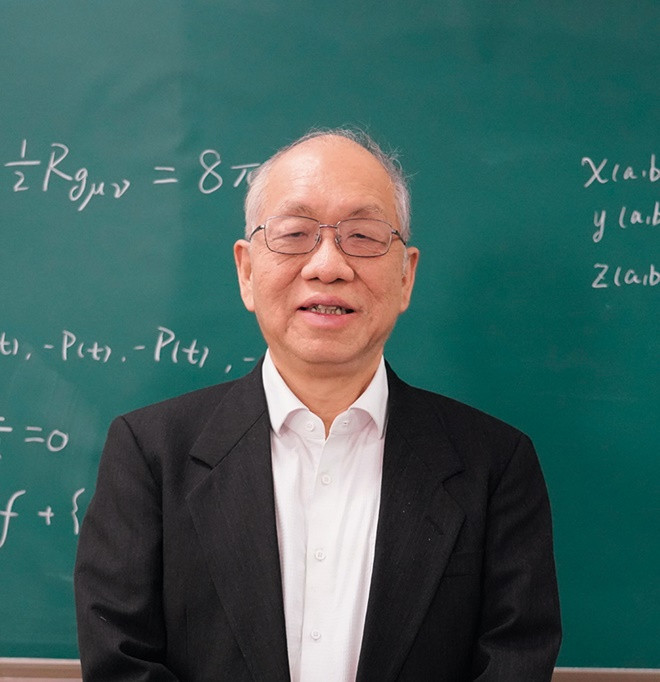
From 1987 to 2022, he taught and researched at Harvard University. During his 35 years of service there, he served as the head of the Mathematics Department (2008-2012) and director of the Center for Mathematics and Applications (2014). In 2013, he became the first person in Harvard history to hold the position of professor in both the Mathematics and Physics departments.
In April 2022, after nearly half a century in the US, he decided to return home to contribute at the age of 73. Since then, he has held the position of Dean of the Qiuzhen Academy under Tsinghua University. In addition, the professor also serves as the Director of the Qiuchengdong Center for Mathematical Sciences (formerly the Tsinghua University Center for Mathematical Sciences).
In order to continue the traditional torch of the late Professor Tran Tinh Than and set the goal of helping China become a mathematical powerhouse within a decade, after only 2 years of returning to his country, he proved his ability. By doing so, he pushed the ranking of the Mathematics Department of Tsinghua University from outside the top 100 to the top 20.
In January 2024, Professor Dong was appointed as the first director of the Shanghai Institute of Mathematics and Interdisciplinary Research (China). Previously, in 2023, he received the Shaw Prize worth 1 million USD (24 billion VND) for his outstanding contributions in the field of Differential Geometry and Analysis. Currently, at the age of 75, he is still teaching and researching at Tsinghua University.
A thorough understanding of the Calabi-Yan Conjecture helped the professor achieve many research achievements such as solving the General Theory of Relativity, the Dirichlet problem for the complex Monge-Ampere equation and regularity, the Minkowski inequality...
This achievement helped the professor win a series of prestigious awards such as: Veblen for Differential Geometry (1981); Fields Medal (1982); Crafoord Prize (1994)...
In 1978, at the age of 29, he was invited to speak at the International Congress of Mathematics held in Finland. This reaffirmed his great contributions to Mathematics.
After his outstanding contributions, in 1997, he was awarded the National Medal of Science by US President Bill Clinton. In 2003, he was awarded the International Science and Technology Cooperation Award by the State. In 2010, the professor received the Wolf Prize in Mathematics.

Source


![[Photo] Many young people patiently lined up under the hot sun to receive a special supplement from Nhan Dan Newspaper.](https://vphoto.vietnam.vn/thumb/1200x675/vietnam/resource/IMAGE/2025/5/18/6f19d322f9364f0ebb6fbfe9377842d3)



![[Photo] Ready for the top competitions of Vietnamese table tennis](https://vphoto.vietnam.vn/thumb/1200x675/vietnam/resource/IMAGE/2025/5/18/9c547c497c5a4ade8f98c8e7d44f5a41)

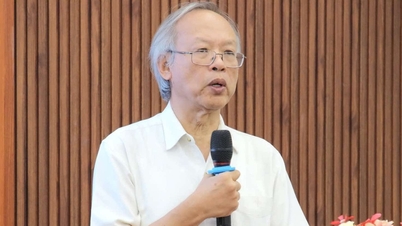
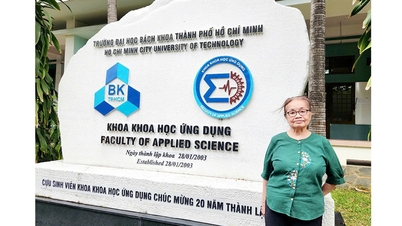






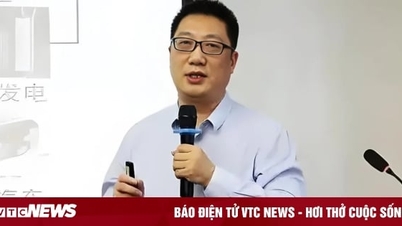
















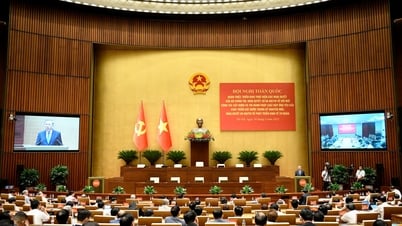




![[Photo] General Secretary To Lam visits exhibition of achievements in private economic development](https://vphoto.vietnam.vn/thumb/1200x675/vietnam/resource/IMAGE/2025/5/18/1809dc545f214a86911fe2d2d0fde2e8)








































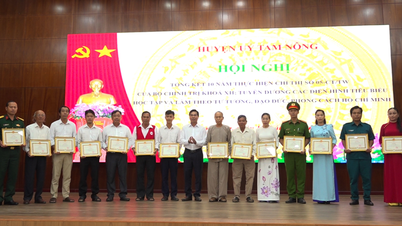











Comment (0)